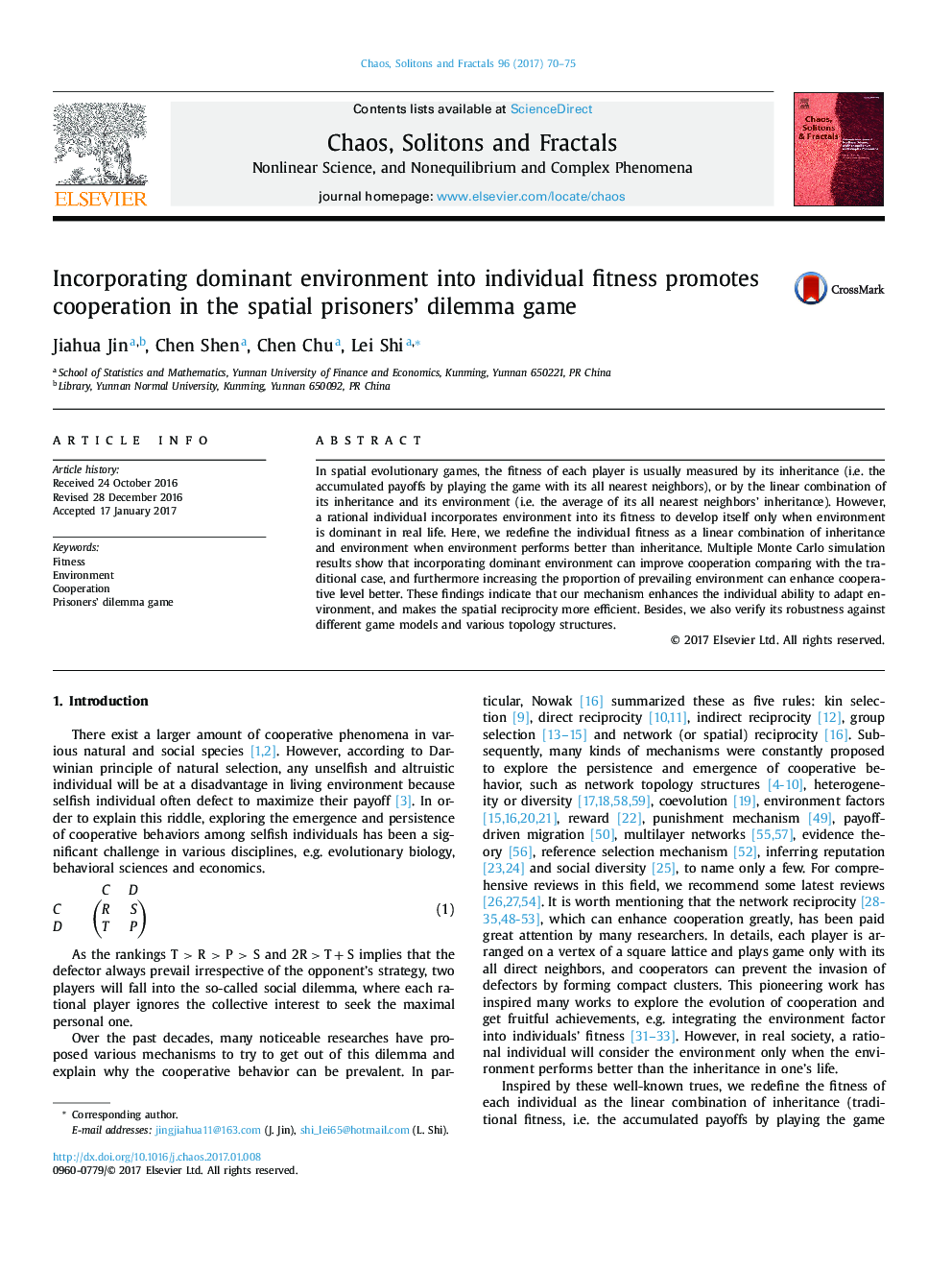| Article ID | Journal | Published Year | Pages | File Type |
|---|---|---|---|---|
| 5499751 | Chaos, Solitons & Fractals | 2017 | 6 Pages |
Abstract
In spatial evolutionary games, the fitness of each player is usually measured by its inheritance (i.e. the accumulated payoffs by playing the game with its all nearest neighbors), or by the linear combination of its inheritance and its environment (i.e. the average of its all nearest neighbors' inheritance). However, a rational individual incorporates environment into its fitness to develop itself only when environment is dominant in real life. Here, we redefine the individual fitness as a linear combination of inheritance and environment when environment performs better than inheritance. Multiple Monte Carlo simulation results show that incorporating dominant environment can improve cooperation comparing with the traditional case, and furthermore increasing the proportion of prevailing environment can enhance cooperative level better. These findings indicate that our mechanism enhances the individual ability to adapt environment, and makes the spatial reciprocity more efficient. Besides, we also verify its robustness against different game models and various topology structures.
Related Topics
Physical Sciences and Engineering
Physics and Astronomy
Statistical and Nonlinear Physics
Authors
Jiahua Jin, Chen Shen, Chen Chu, Lei Shi,
